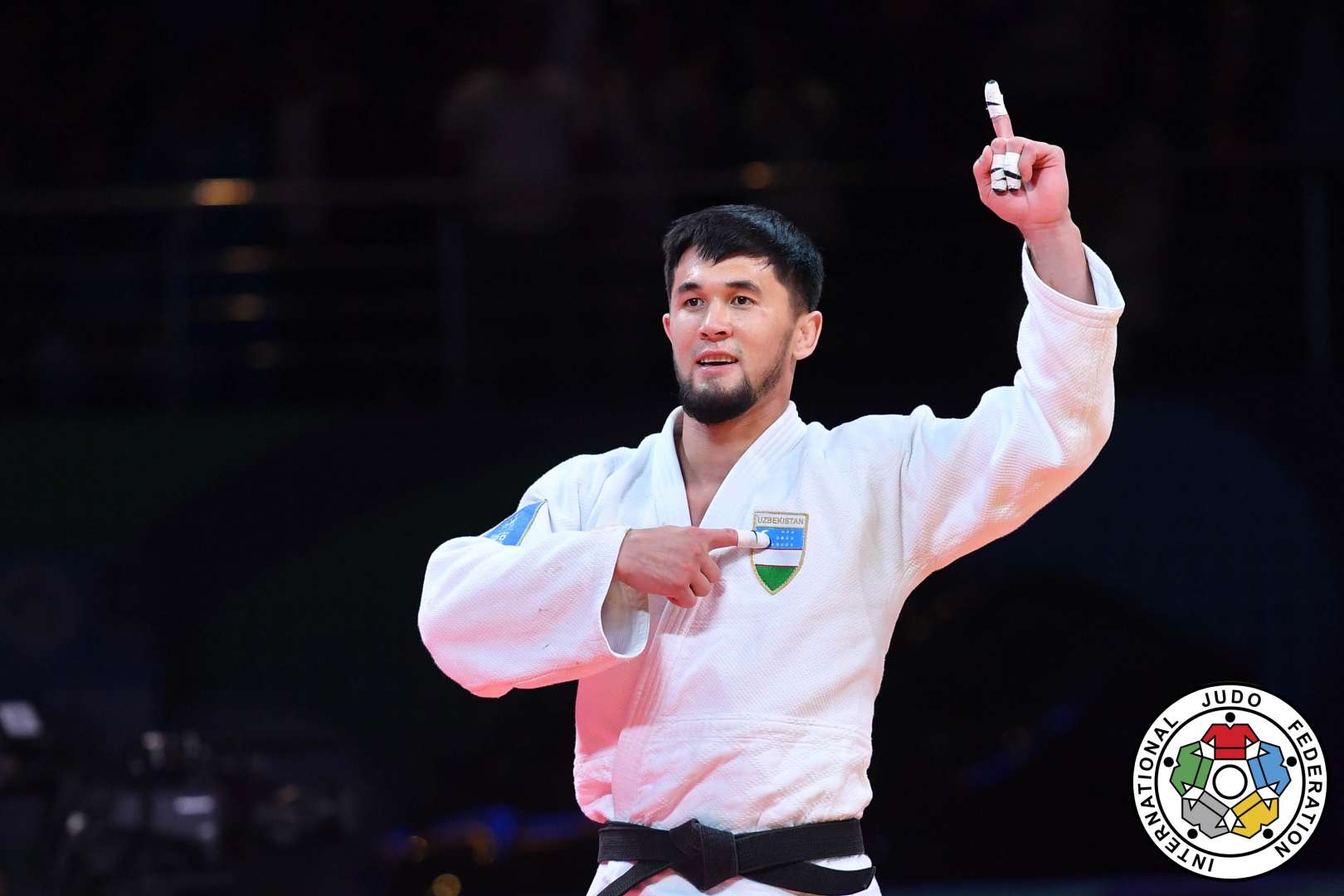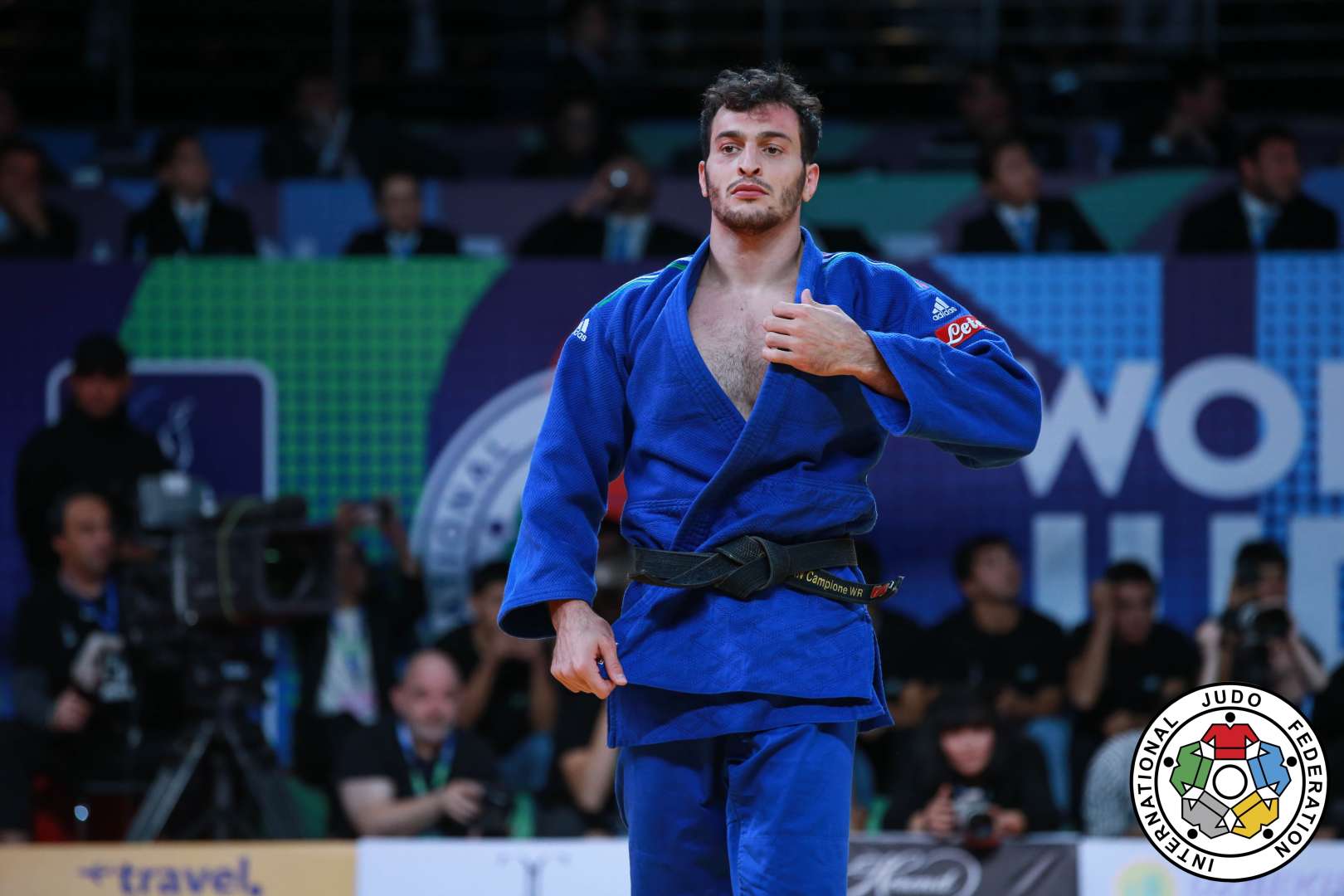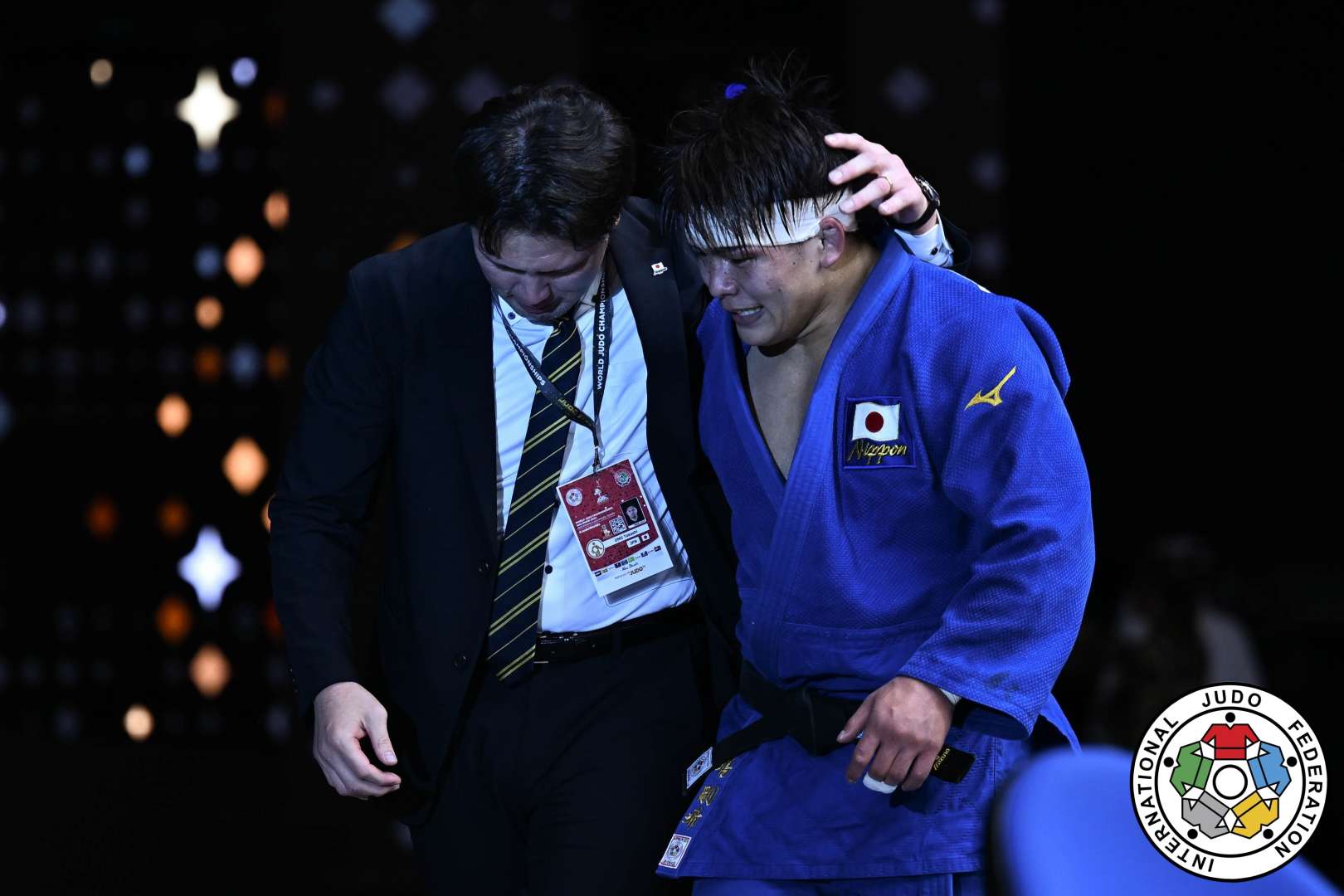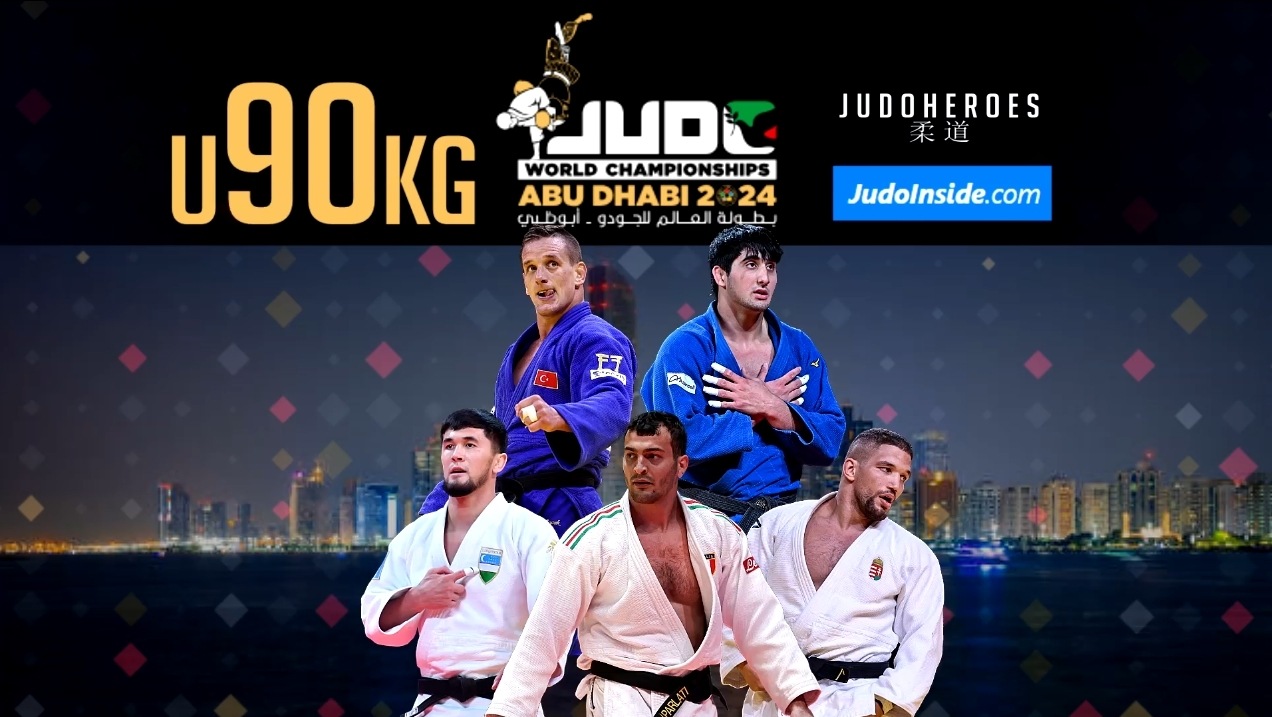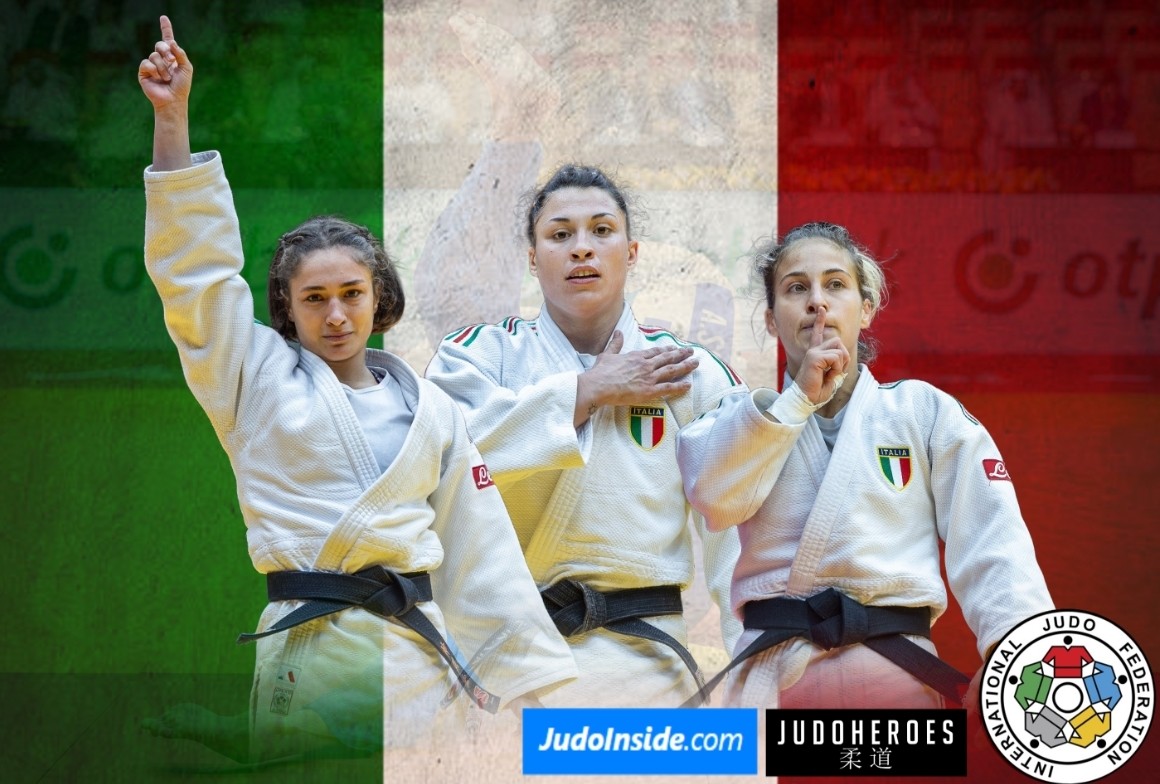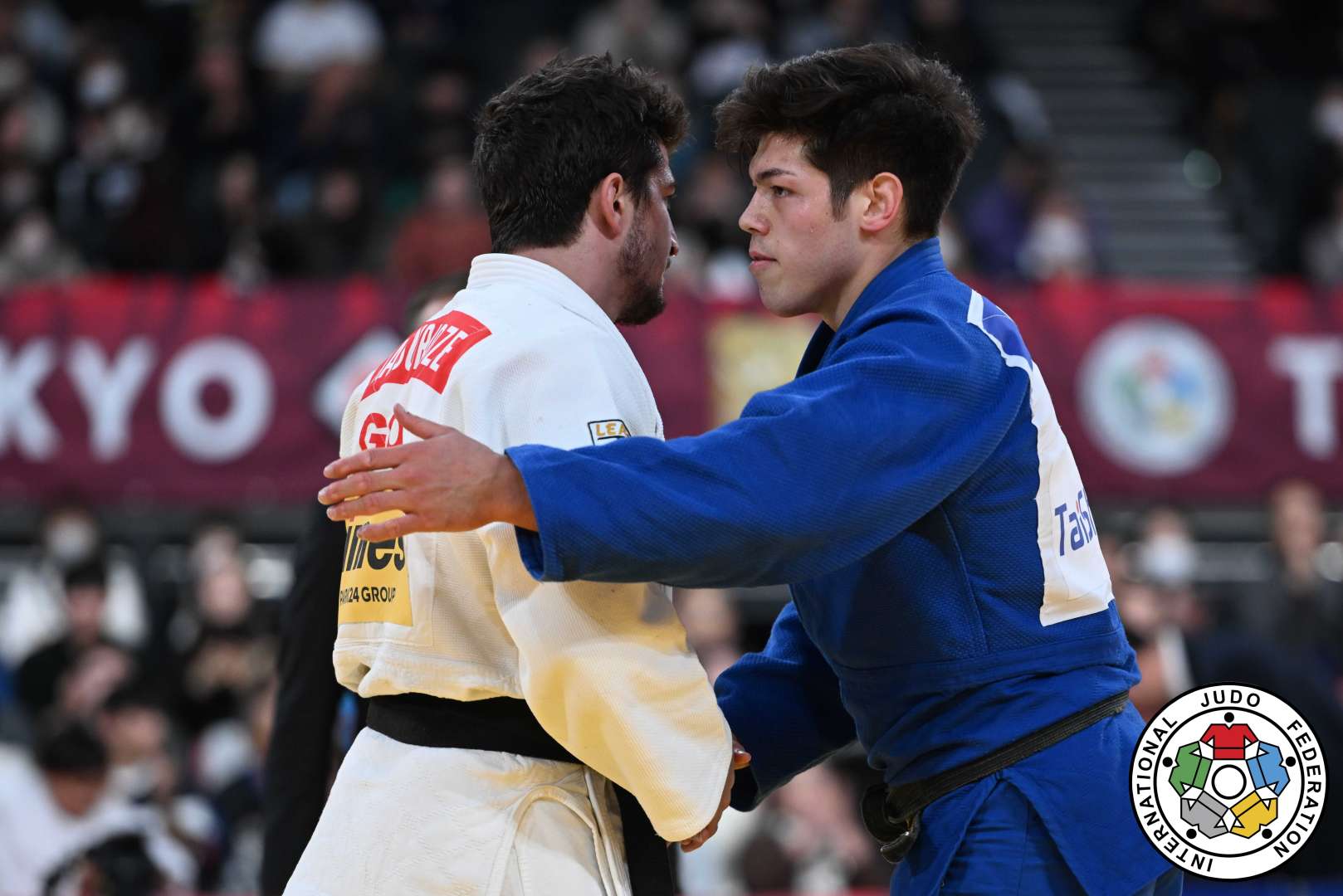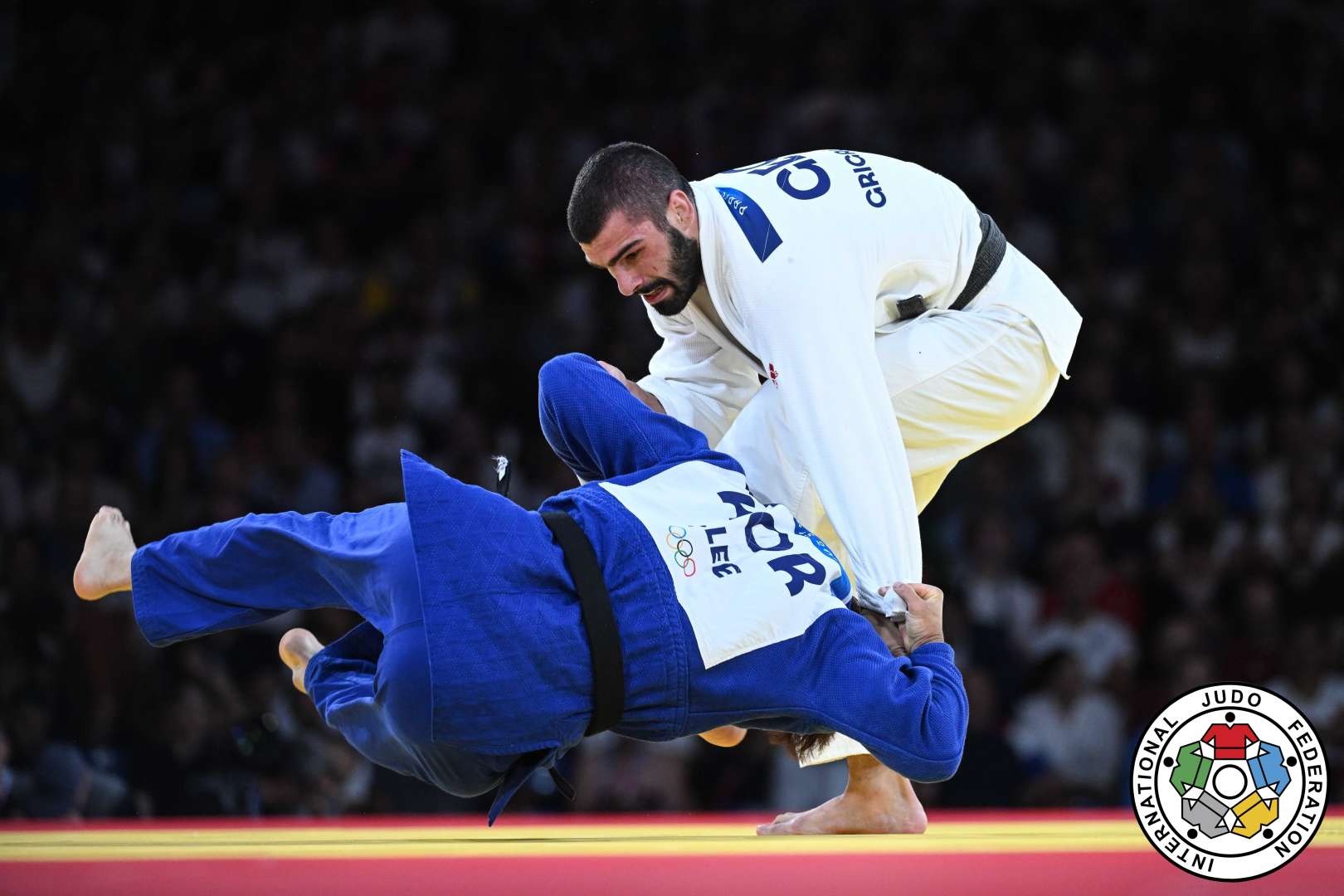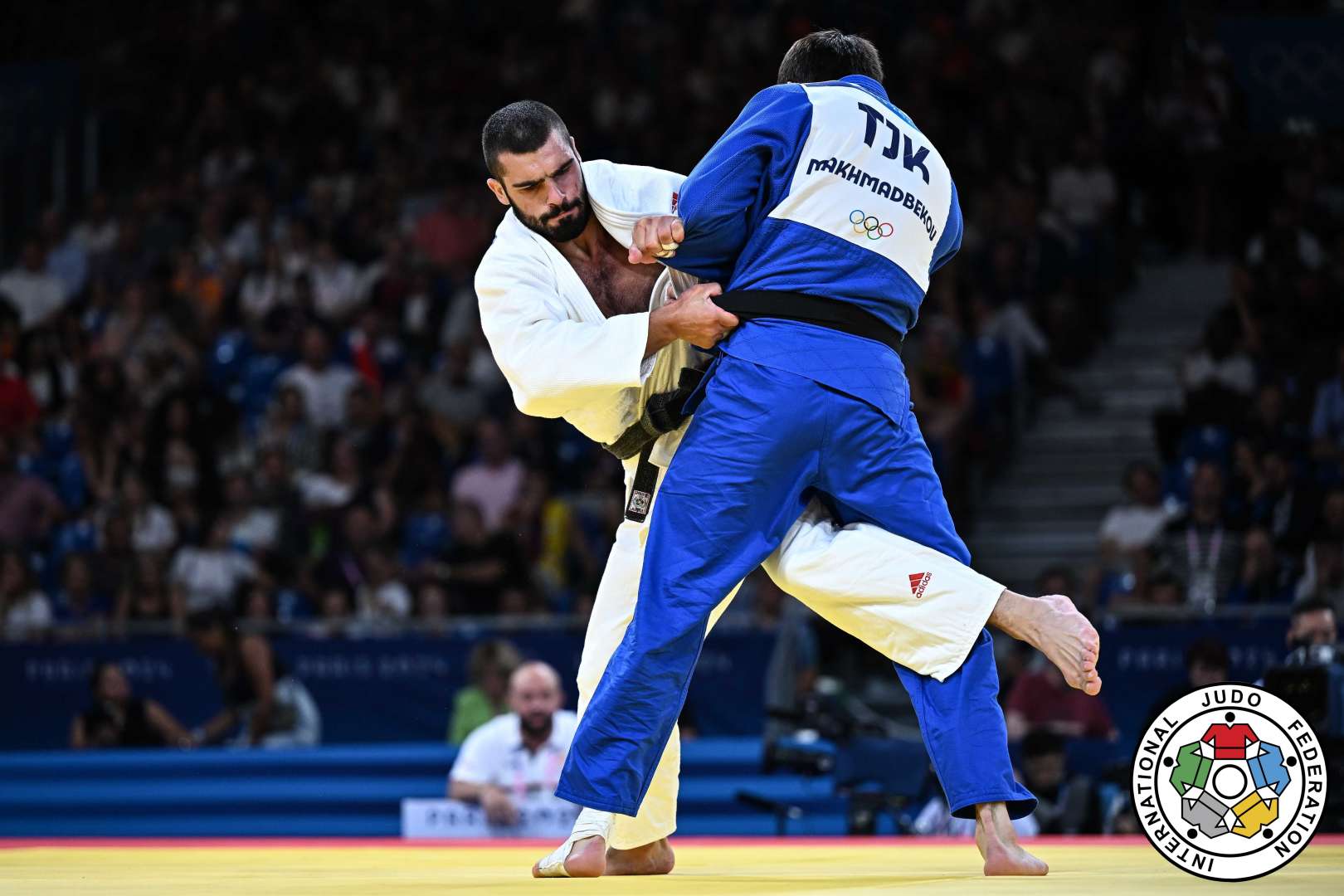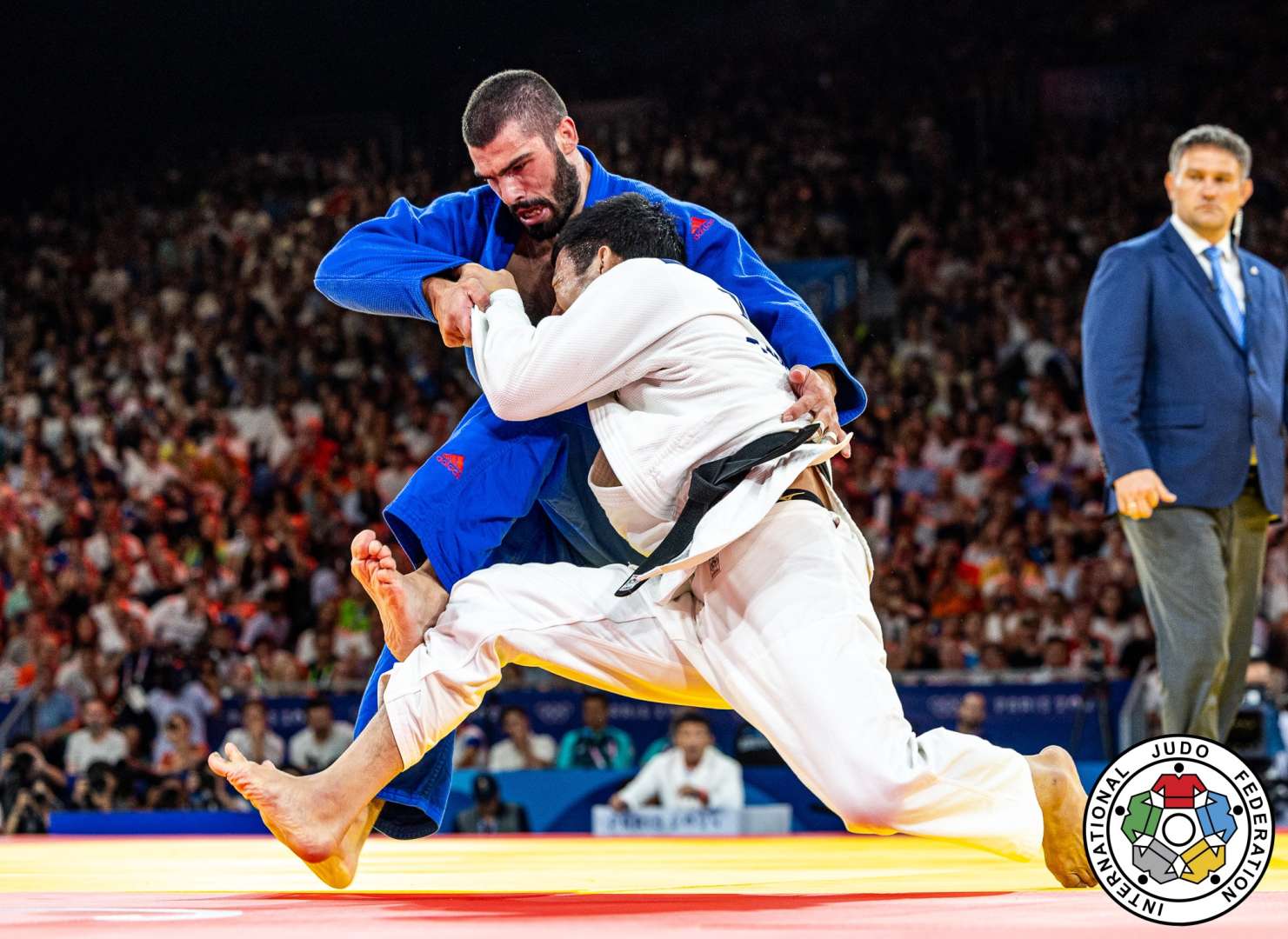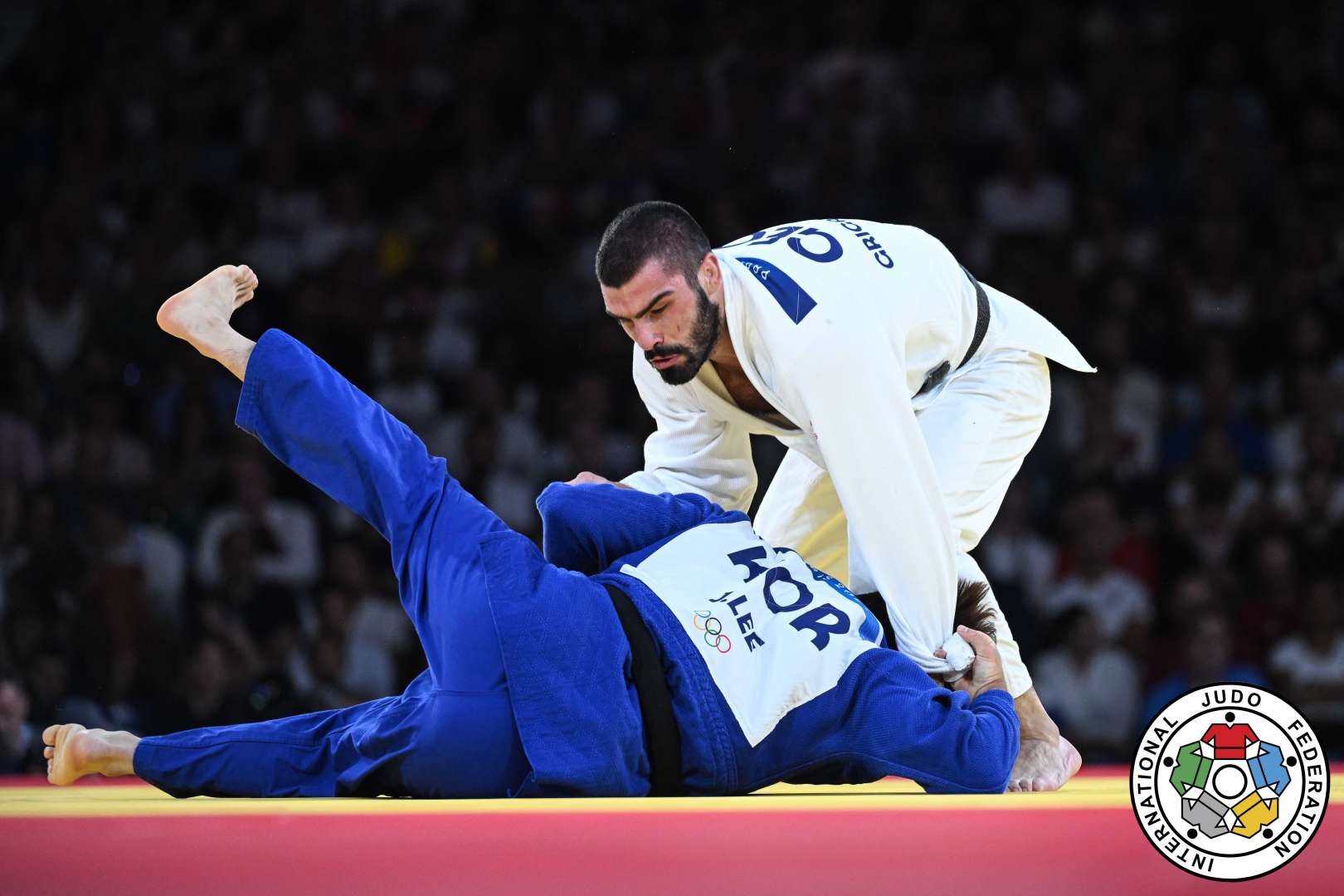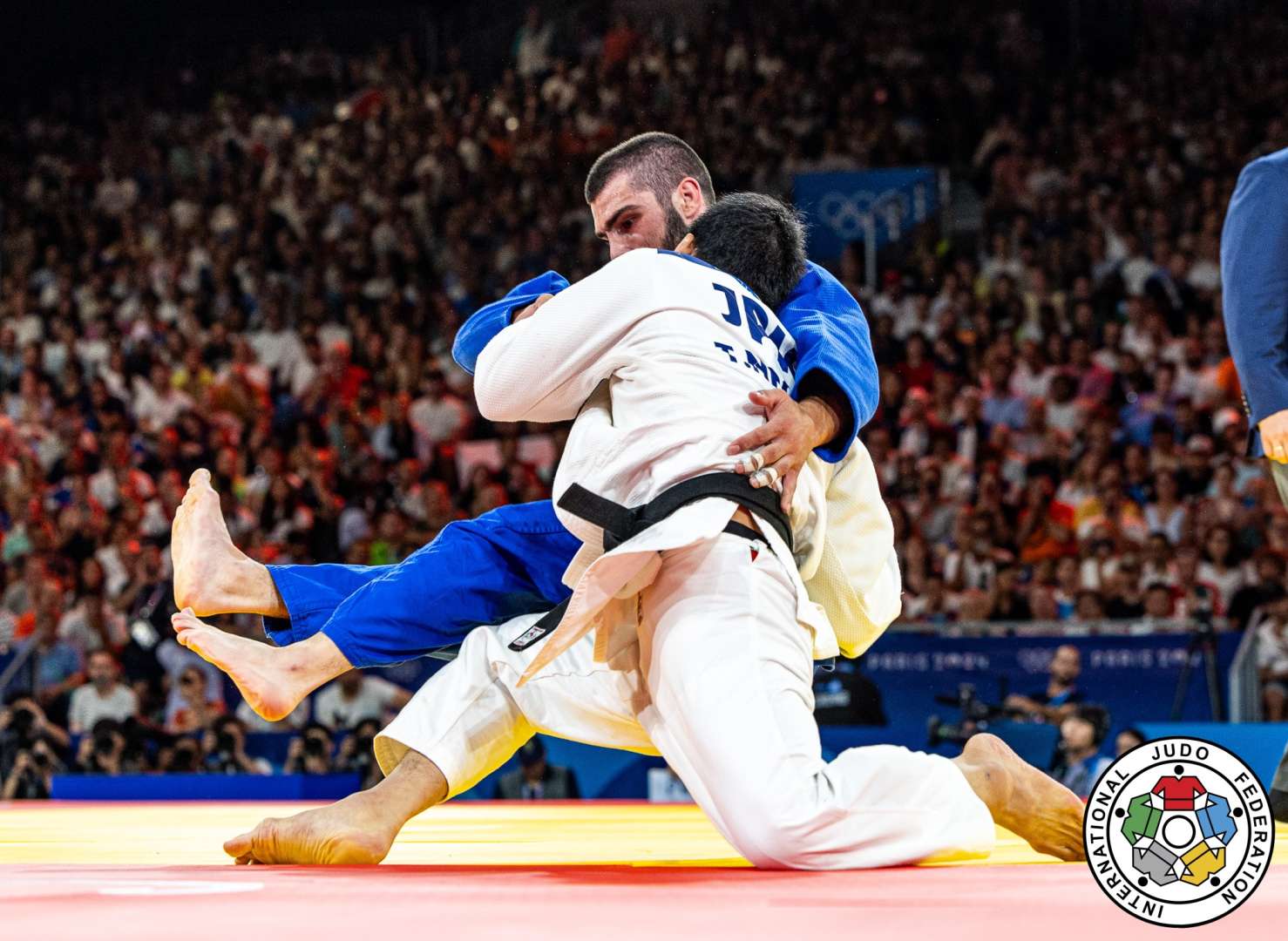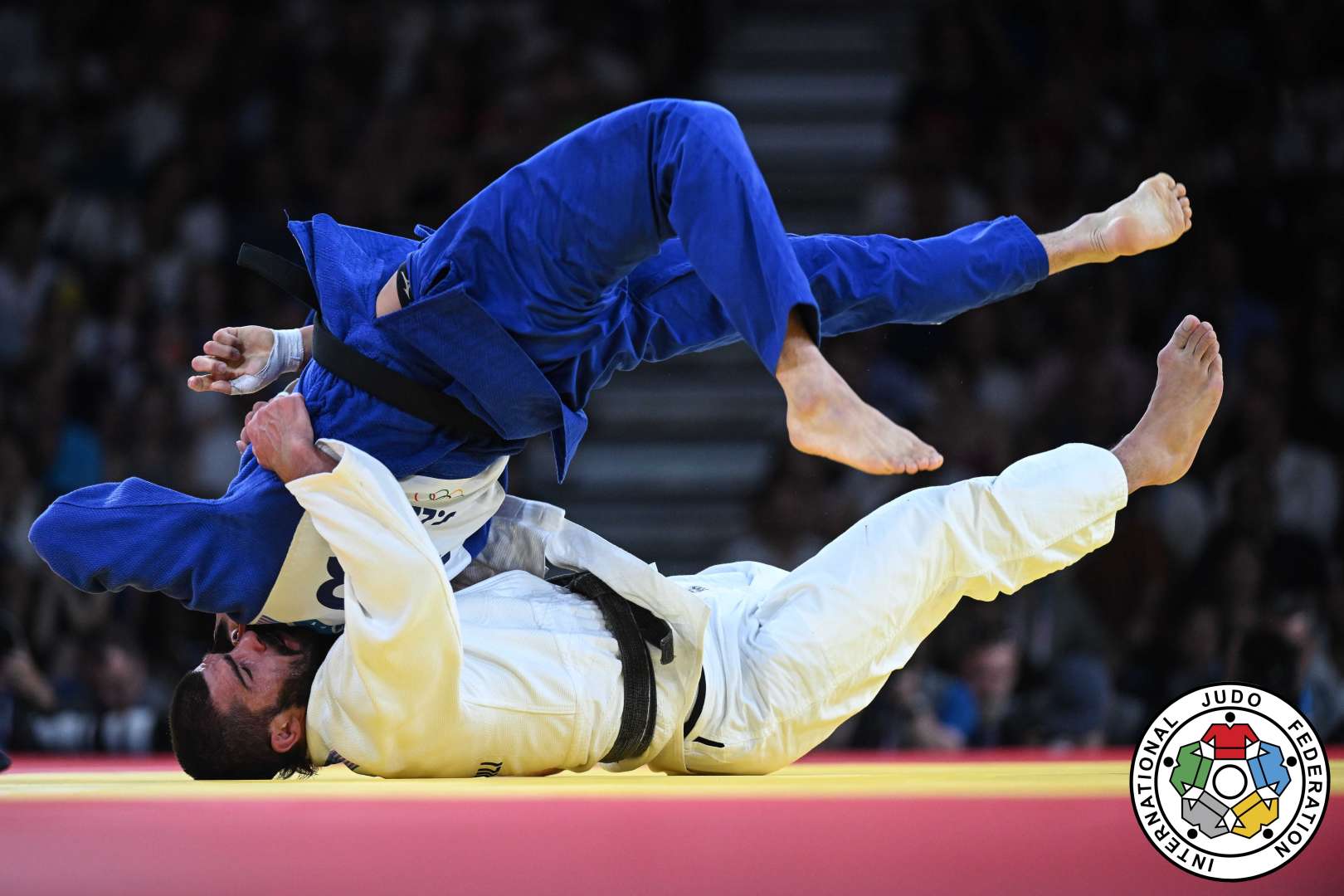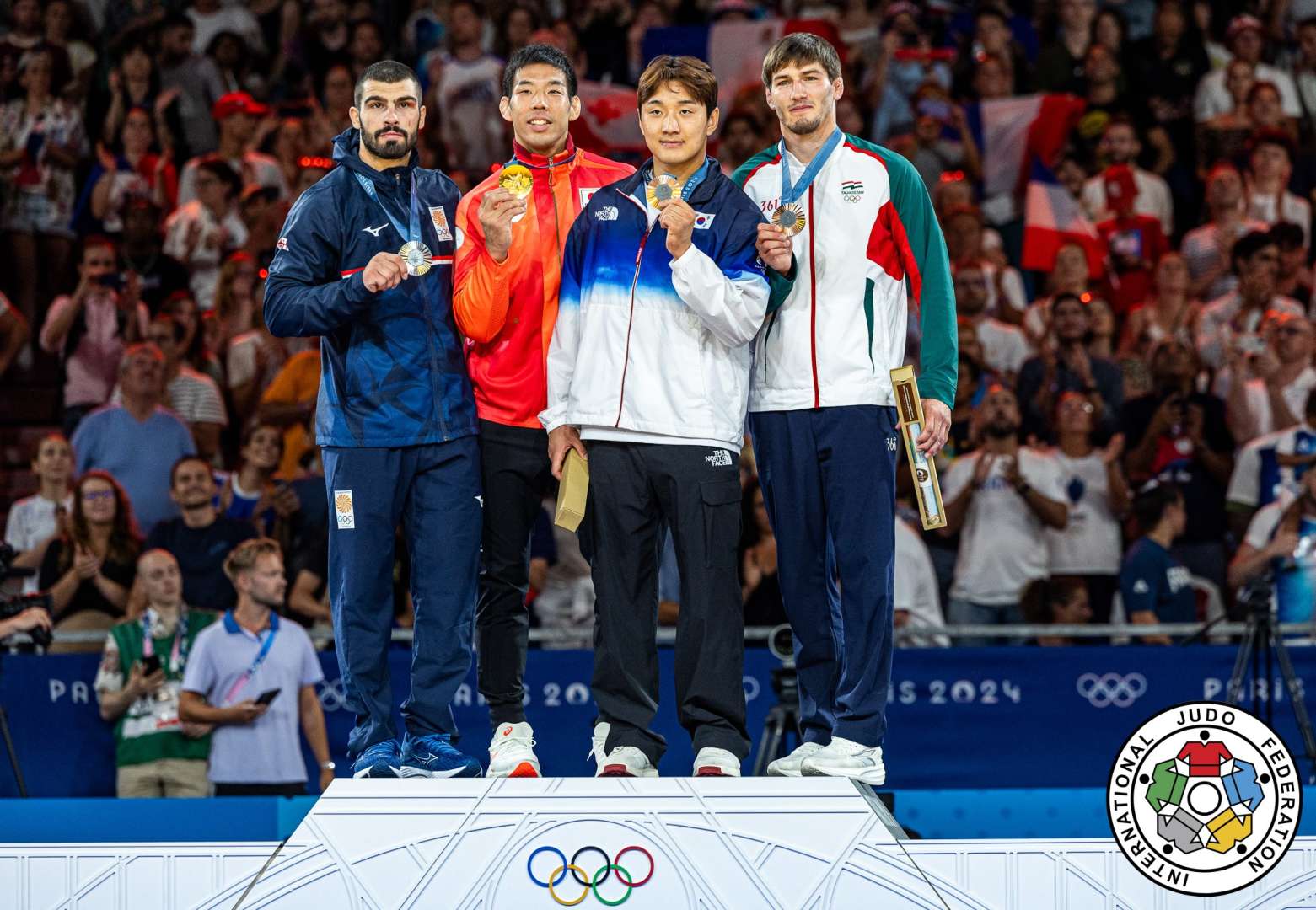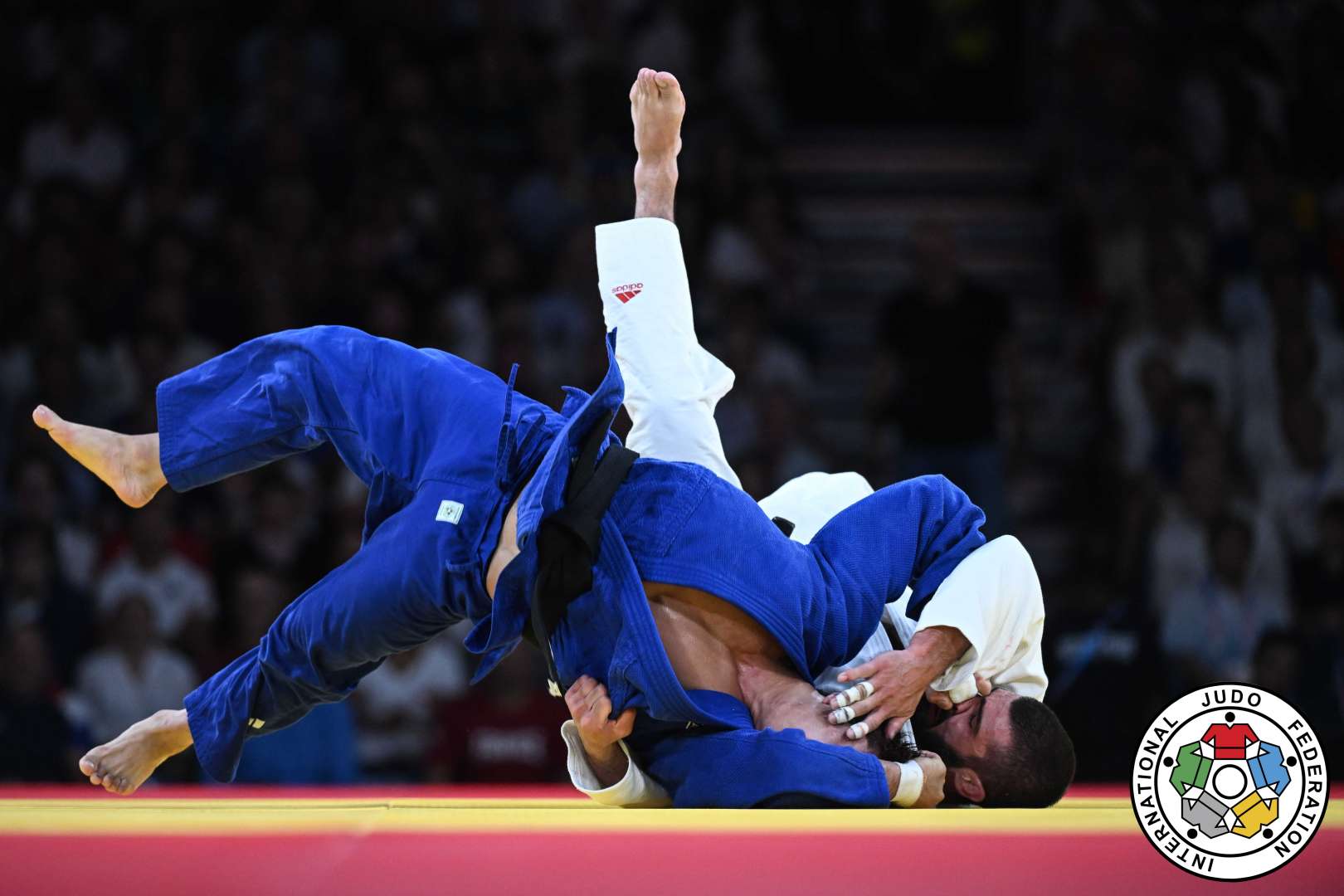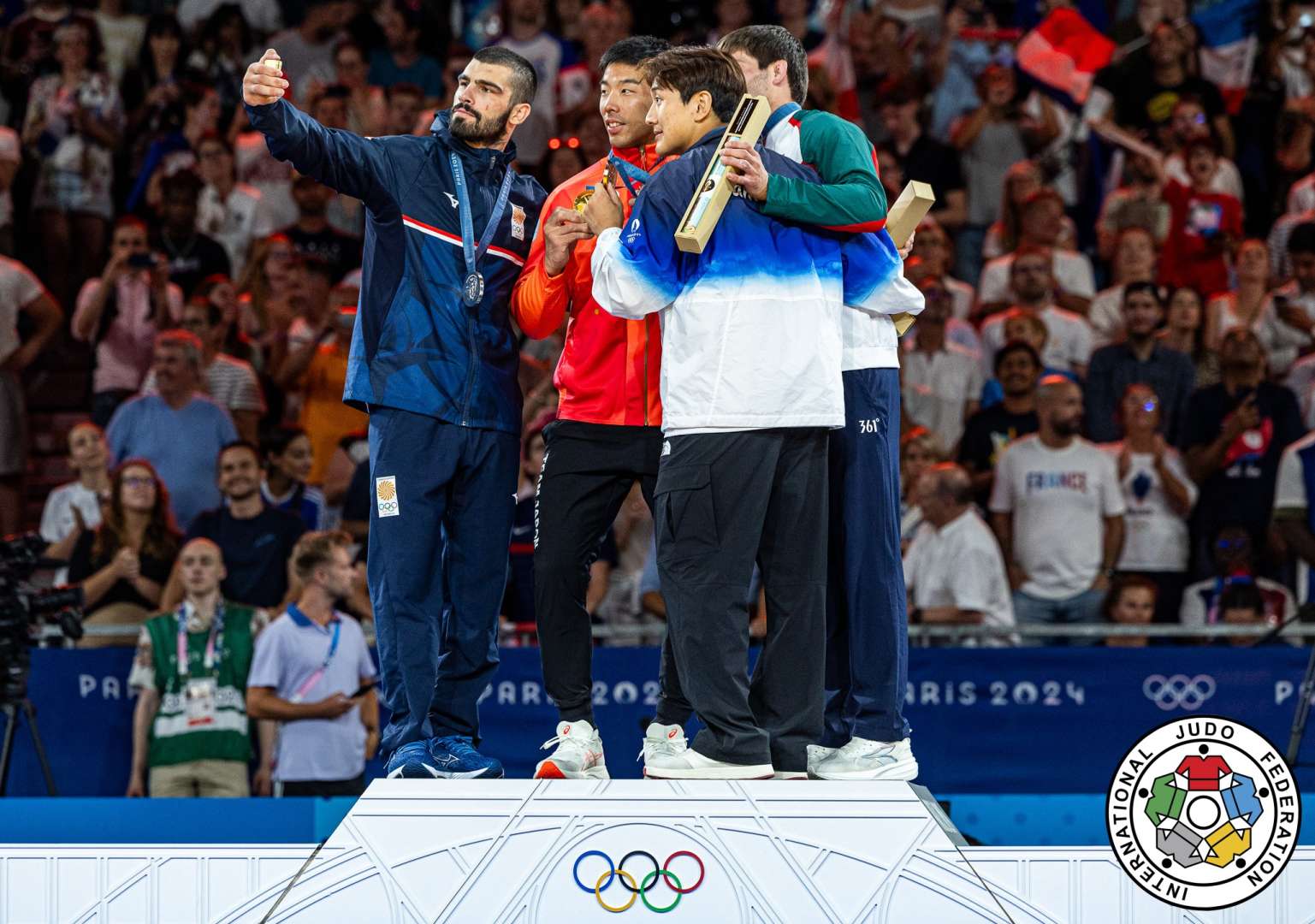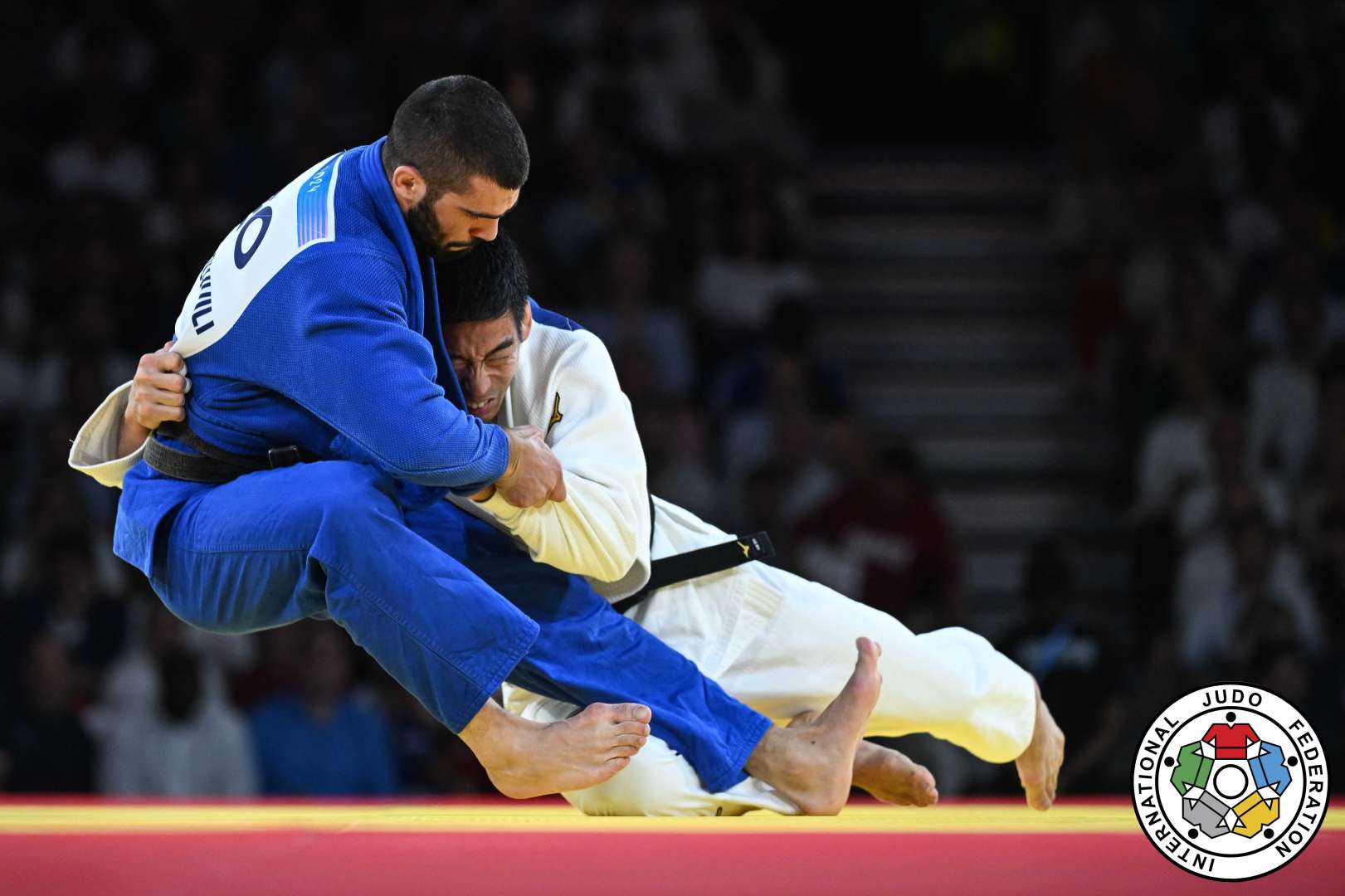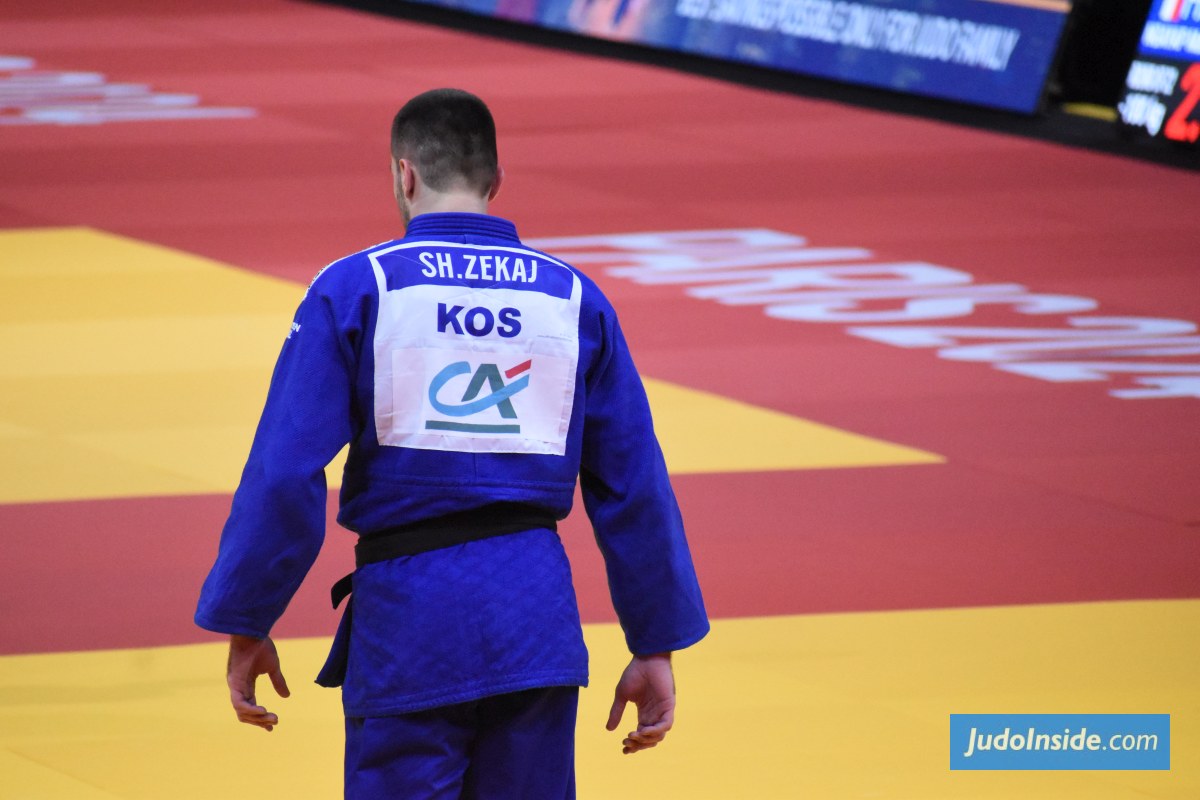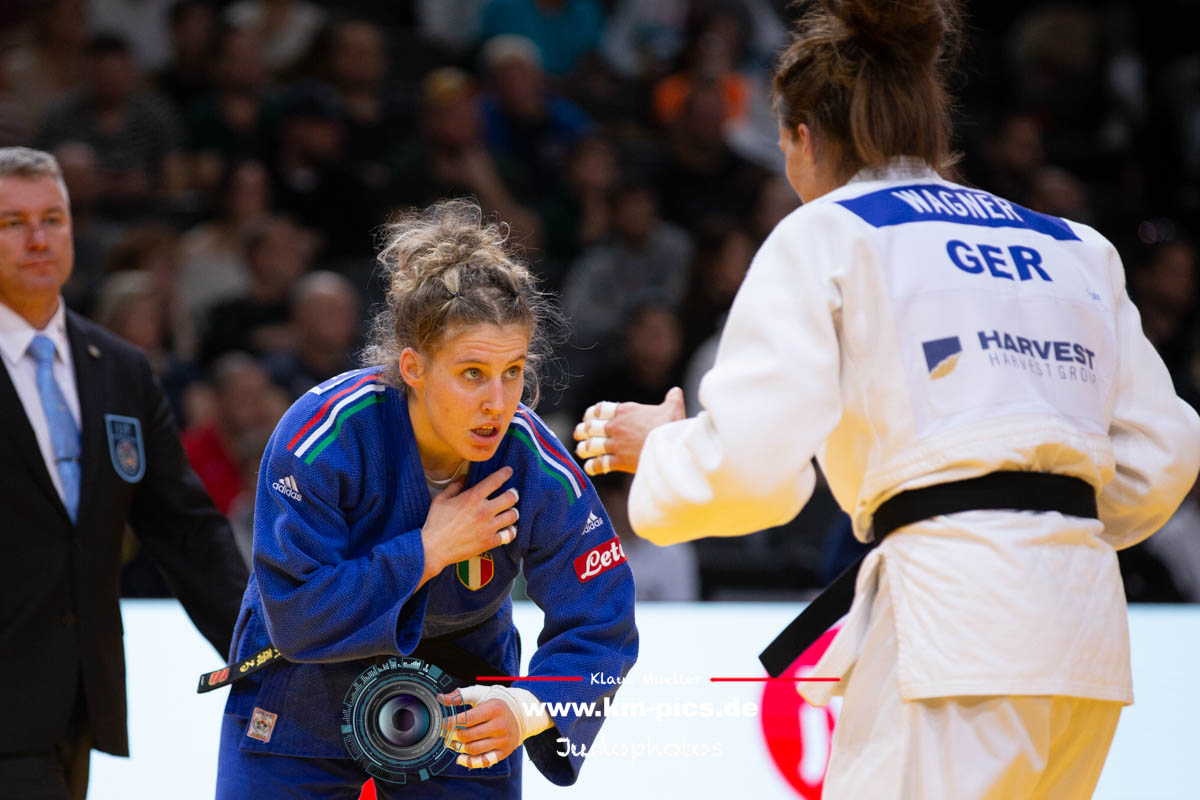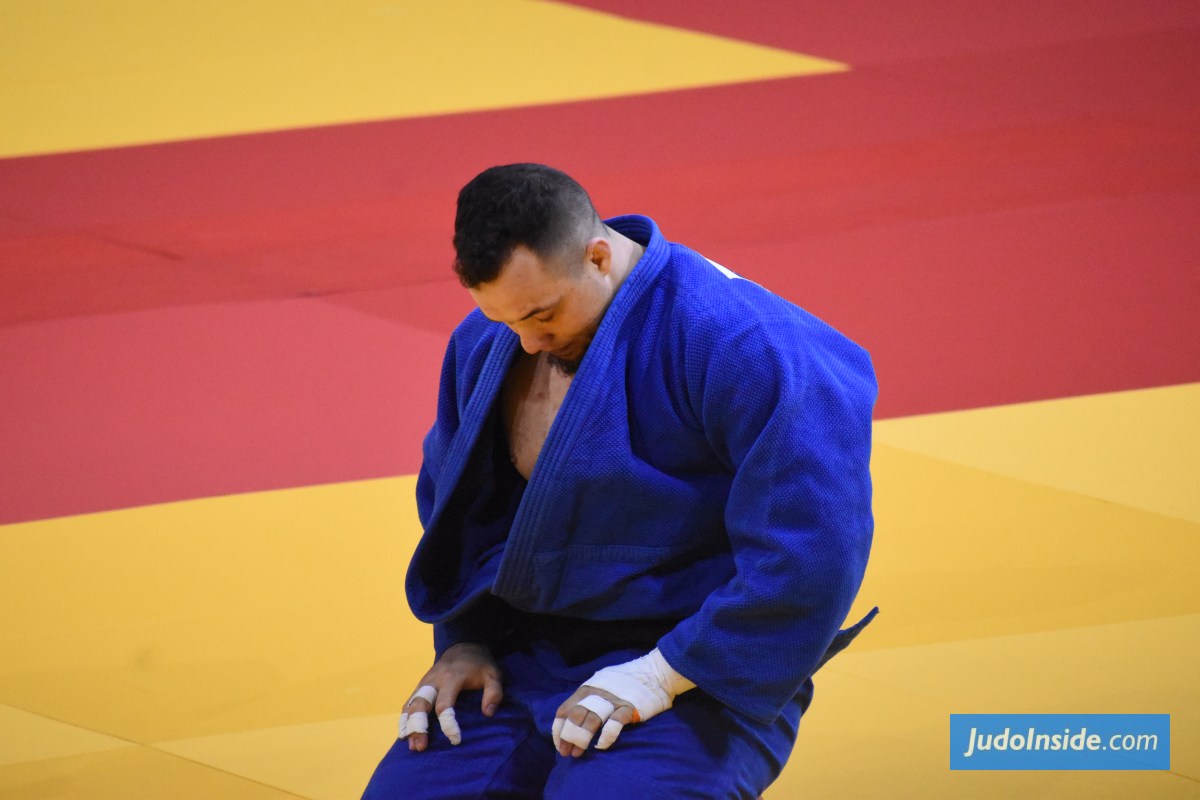Davlat Bobonov gives Uzbekistan golden judo future
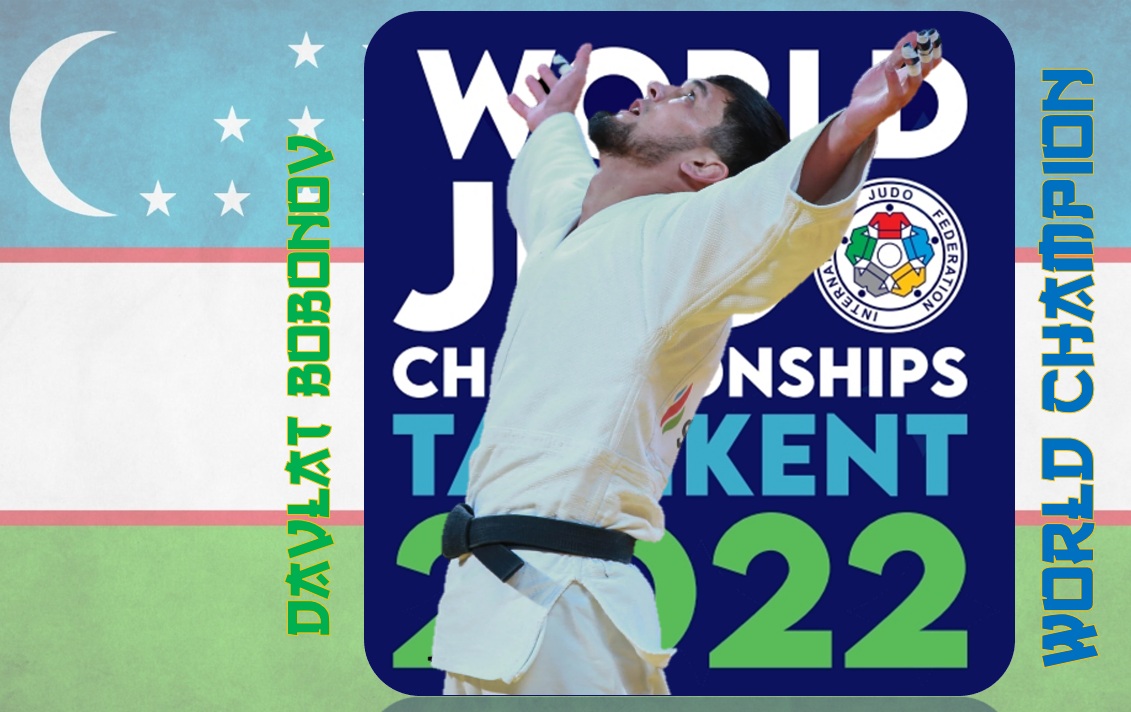
 10 Oct 2022 20:20
10 Oct 2022 20:20
 IJF Media team by Pedro Lasuen and JudoInside
IJF Media team by Pedro Lasuen and JudoInside
 JudoInside.com - Hans van Essen / judo news, results and photos
JudoInside.com - Hans van Essen / judo news, results and photos
On the fifth day of the World Championships all eyes were on the two Georgian representatives, Lasha Bekauri, Olympic champion, and Luka Maisuradze, European champion. But as a home fan of Uzbekistan judo the most anticipated athlete of all was Davlat Bobonov, number one in the ranking. He qualified for the final after defeating Olympic Champion Lasha Bekauri. His opponent was Italian, Christian Parlati showed his fast transition from U81kg to 9kgs up U90kg.
When the speaker announced the arrival of Bobonov, the stadium almost fell due to the enthusiasm of the public. The atmosphere was tremendous, anyone's hair stood on end. Bobonov did not want to temporise and attacked as soon as he heard hajime, which caused a first shido on the Italian side, due to passivity. It was a good strategy because Bobonov was looking to score but, if he didn't, he prevented Parlati from doing the same. And so came the second shido. Everything was going well for Bobonov but it must be recognised that the Italian does not get scared just like that. In addition, he also had no choice but to attack so as not to be disqualified and that was when the fight got really interesting because the gold depended on Parlati's attitude and the Italian understood and tried but Bobonov was more intelligent because when the Italian tried to do something, he would launch an attack earlier and so Parlati garnered a third shido. Beyond getting the first metal for Uzbekistan and in addition to gold, Bobonov completed his tournament with a masterful lesson in tactics.
Semi finals
Bobonov needed all support for a place in the final and was neutralising Olympic champion Lasha Bekauri. The Georgian did not compete since Tokyo but last month he won a European open; he needed sensations and to recover the predatory instinct that you only get on the tatami. In Tashkent, as we have already mentioned, he had a difficult first round against the Japanese Mashiyama, before getting rid of the Brazilian Macedo and the Cuban Silva Morales, who are not first-timers. The Georgian was on the right track but he didn't know that Bobonov had one of those days when it's best to avoid him.
Each entered like a beast, unceremoniously, trying to knock the other down. Bobonov gave a couple of scares to the Georgian fans who had travelled to Tashkent but Bekauri avoided ippon. So the Georgian did two things, one predictable, the other not. The predictable thing was to attack in his own way, with explosiveness and forcefulness, to hunt the first score. The unforeseeable thing, that cost him elimination, was making the mistake of diving, an unforgivable mistake for an Olympic champion in the semi-finals of a world championship. Uzbekistan already had a medal secured, but what colour and against whom remained to be seen.
With the first favourite out of the game, the second remained, Maisuradze, who was fighting at the same time as Bekauri on the next tatami. Maisuradze had defeated the Lebanese Sagaipov, the Mongolian Gantulga and the Spanish Mosakhlishvili. Ahead lay a highway with no traffic, since Mehdiyev's elimination. The Georgian could already touch the medals. At that moment, the worst nightmare came true, to face an opponent who is having the best day of his life. Christian Parlati had done much more than defeat Mehdiyev, because the Italian had miraculously escaped an almost certain defeat against the Brazilian Gomes, who was ahead on the scoreboard and seemed untouchable. It was the day of Parlati, who appeared in the semi-finals with a wry smile, enjoying the moment and preparing the final assault. Taller than Maisuradze and more inspired, Parlati scored ippon for a date with glory and incidentally crushed the aspirations of a country, Georgia, which was already savouring a final among compatriots in advance. What many thought would be a duel between Bekauri and Maisuradze turned into a party between Bobonov and Parlati.
Twice bronze for Georgia
If the Japanese at -70 were disappointed to have lost in the semi-finals, we can imagine the mood of the Georgians, who were also the huge favourites. Nobody likes to change gold for bronze but a medal is a medal and you have to be professional until the end. Maisuradze clashed with Cuban Iván Felipe Silva Morales, former world runner-up, and we soon realised that the Georgian was not fighting at his usual level, as if the moral blow of his previous defeat had been too much for him. However, Silva Morales could not find a gap in the Georgian's defence. It was a mistake because Maisuradze finally came out of his lethargy and showed a few grams of his immense class to score waza-ari. It's not gold but he came home with a win.
We didn't know how Bekauri would react but we did know that Spain had a chance to get a first medal, thanks to Tristani Mosakhlishvili, who entered the medal race in his first participation in a world championship. The answer was not long in coming, Bekauri wanted his medal and so he explained it to Mosakhlishvili with an expeditious waza-ari and a monstrous ippon seconds later. He was disappointed, yes, but his reaction was worthy of an Olympic champion. As for Mosakhlishvili, now he knows how far he has to go if he wants to touch medals.
Surprises in the Prelims
In the early eliminations department top-seeded Azerbaijani Mehdiyev and second-seeded Hungarian Toth were the early victims. Both had a date with the medals but their aspirations vanished before they broke a sweat. In the department of the fights that could have been a final instead of a second round, the duel between the Cuban Silva Morales and the Serbian Majdov with victory for the former, and the opposition between the Georgian Bekauri and the Japanese Mashiyama, with defeat for the second. As it is a world championship there are no moments of relief or easy fights, but the stumbles of some of the best are useful to clear the panorama and create a composition before the really serious thing arrives, the quarter-finals, because it is there where you really fight for the medals.
 like
like
 share
share

| Result | City | Date |
|---|---|---|
| 2 | Paris | 2024 |
| 1 | Abu Dhabi | 2024 |
| 1 | Zagreb | 2024 |
| 3 | Belgrade | 2023 |
| 2 | Montpellier | 2023 |

